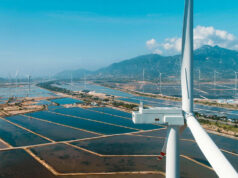By Victor V. Saulon,
Sub-Editor
METRO CLARK WASTE Management Corp. (MCWM) expects its profit to double from P200 million once the company has completed the construction of a private road leading to the integrated waste management facility that it operates within the area’s special economic zone.
“We have had very rapid progress in the last three years. Four years ago we made measly P10 million. This past year, we made probably P120 million. And this year, close to P200 [million],” said MCWM Chief Executive Officer Rufo B. Colayco.
“And once that road opens, it (profit) could double,” he said, referring to a private road that the company is about to build that connects to a separate road being built by state agency Bases Conversation and Development Authority (BCDA).
The private road will make access to the company’s landfill easier and faster — from the North Luzon Expressway to the Subic-Clark-Tarlac Expressway then to the Bamban exit that BCDA is building in Tarlac province.
“That will enable us to move garbage from a place like Quezon City or Caloocan [City] far more cheaply than those people who are now bringing that stuff to Montalban,” he said.
Mr. Colayco called the business, which is a partnership with German companies BN Ingenieure GmbH and Heers & Brockstedt Umwelttechnik GmbH, a “natural sequence” from his previous job. He is best known for being the man behind the first three Shangri-La hotels built in the country — Makati, EDSA and Mactan.
“In its core, the business really is the landfill which we built,” he said.
MCWM operates 80 kilometers away from Metro Manila. It currently serves around 90 municipalities and collects an average of 1,600 tons of municipal solid waste per day. The Clark Integrated Waste Management Facility, which is said to be patterned after European technology, earns from the fees paid by the local governments.
“It’s not just finding a piece of land and dumping garbage on it. You build a proper facility, with all the multi-layer and the treatment of the waste so that the water that’s finally disposed in the stream is clean,” Mr. Colayco said.
“It’s not rocket science but it is a worthy engineering. It has to be done properly. And that we do very seriously to the extent that we’ve acquired ISO certification,” he said.
MCWM currently has 200 workers and an annual payroll of about P50 million, he said. The company’s revenues last year reached almost P1 billion, he said, adding that this year the company will “certainly” hit P1 billion.
He differentiates the company’s approach in hauling garbage by building “transfer stations” in the cities where it has secured a contract, freeing waste collectors from the costly mode of bringing the garbage all the way to the Montalban landfill.
From the transfer stations, the garbage is loaded onto the company’s trailers, which are pulled by diesel-fueled tractor heads, similar to the trucks hauling waste to Montalban, but with better fuel efficiency because they travel via the expressways.
“But once that road is finished at the end of this year and if we succeed in getting a contract from a Quezon City or Caloocan, those people generate at least a thousand tons a day, and that will literally double our business overnight,” he said.



